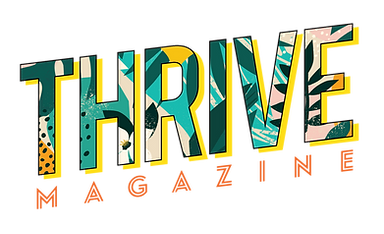The Forgotten Two: Your Marvelous Kidneys
- mantramag
- Dec 17, 2019
- 4 min read
Shushana Castle Co-Executive Producer of What the Health & Eating Our Way to Extinction Producer, Sharkwater Extinction & Running for Good, Co-Author, Rethink Food & The Meaty Truth
~
Instagram: @shushana_castle

Behold the marvelous kidneys. These awesome vascular organs receive blood from the heart with dynamic purpose: to detoxify the body. These fit-sized organs filter about 200 quarts of your blood daily.
Each kidney has about a million delicate filtering units called nephrons, which have the complicated job of filtering out toxins, waste and excess fluid, basically mopping up toxins in the blood, then excreting it as urine. The kidneys help produce vitamin D, important for calcium absorption and the hormone that regulates red blood cell production. The kidneys are like your body’s Marvel superheroes, ridding you of “the bad guys.” And though they work best as a team, just one kidney will work hard enough for you to live well. But when your kidneys don’t work? Currently 26 million Americans have kidney disease— from diabetes to kidney stones. And it’s called a silent disease because most people don’t know they have kidney disease until symptoms are prominent.
The Kidneys and Heart Love Affair

Your heart and kidneys intimately tango dance constantly, which is why preventing vascular disease and the narrowing of blood vessels is the most effective treatment and prevention of kidney disease. Why? Because high blood pressure, high cholesterol and inflammation all damage the filtering units of the kidney. When fluid and waste products remain trapped in the body, rendering chemical imbalances, kidney dialysis is then needed to remove it. Feeling like a nephrologist MD yet? We can think of the blood vessels in our bodies and our kidneys as plumbing systems. As pipes get clogged, the flow of water through the pipes gets disrupted, decreasing water pressure or causing leaks. Diseases such as diabetes, high blood pressure, high cholesterol and obesity affect our body’s plumbing system, causing blood vessels to get clogged and injured. What’s the connection? These diseases all lead their way to kidney malfunction. Then the toxins build up in your body and eventually dialysis is on your radar. The more you prevent heart disease, the more you protect your kidneys from damage and further loss of kidney function.
How Animal Protein Is a Drain on Kidneys
For years now, popular diets have advocated consuming high amounts of animal protein. These diets slowly but surely damage both the heart and kidneys, leading America to its present kidney disease crisis. Here’s how it (doesn’t) break down:
Perhaps the most serious harm of a diet high in animal protein is that it puts more strain on the heart by increasing inflammation, acid levels and uremic toxins in the body. As a result, the kidneys lose the ability to excrete phosphorus and acid from protein. But excess protein, in and of itself, places more stress on the kidneys and can lead to damage over time. Unlike carbohydrates and fat, the body cannot store excess protein. Therefore, the kidneys step in to eliminate the toxic waste products of protein metabolism. This action places more stress on these delicate organs and the rest of the body.
Plants to the Rescue
The good news is that most kidney disease can be prevented, slowed or reversed. The most powerful act: change your diet.
Many studies found that people with chronic kidney disease who consumed the most fiber (i.e., plant foods) had significantly lower markers of inflammation, improved blood lipids and antioxidant status. Vegan diets rich in fruits and vegetables are alkaline-forming in the body, while animal proteins and processed foods tend to be acid- forming. Acid-base balance is crucial to preventing bone loss, maintaining muscle mass, improving lipid profile and reducing inflammation—all benefits to the kidneys.
The less protein we eat, particularly animal protein, the lower the workload on our kidneys. In patients with more advanced kidney disease, vegan diets have shown promise in slowing down the disease process and keeping the cardiovascular system healthy. If you already have kidney disease, take heart! Taking control of your lifestyle will empower you to live healthier and stronger than ever before.
Pleasure Your Kidneys
Eat whole-food, plant-based diets, which are naturally rich in fiber, vitamins and minerals, antioxidants and phyto chemicals that help protect our bodies against heart disease, high blood pressure and diabetes.
Prevent and reverse kidney disease by eating fiber, present only in plant foods.
Drink plenty of clean water to flush out toxins.
Drink teas such as stinging nettle, sambong and hydrangea to cleanse the kidneys.
Get your protein from plants: animal protein exacerbates heart disease and inflammation.
Choose foods that contain resveratrol and support kidney health, including grapes and berries.
Prevent and reverse urinary tract infections by eating cranberries.
Prevent kidney stone formation by eating foods high in citric acid—for instance, lemons and oranges. They bind to calcium and flush it out in urine.
Promote a healthy pH electrolyte balance by eating enough potassium—for instance, avocados, oranges, beans, apricots and leafy greens.
Eat organic.
Reduce salt intake.
Eliminate toxins through sweating, by exercise or sauna. Combat the Nasties • Don’t eat processed foods. • Don’t smoke. • Don’t consume meat or dairy. They contain zero fiber, are highly acidic and lead to kidney stones. • Don’t avoid plant-based foods. They are calcium and oxalate rich sources. Oxalate, not calcium, leads to kidney stones. Plant-based calcium reduces the chances of kidney stones by binding with oxalate, then passing it out. • Don’t lose sight of the big picture.
.png)










Comments